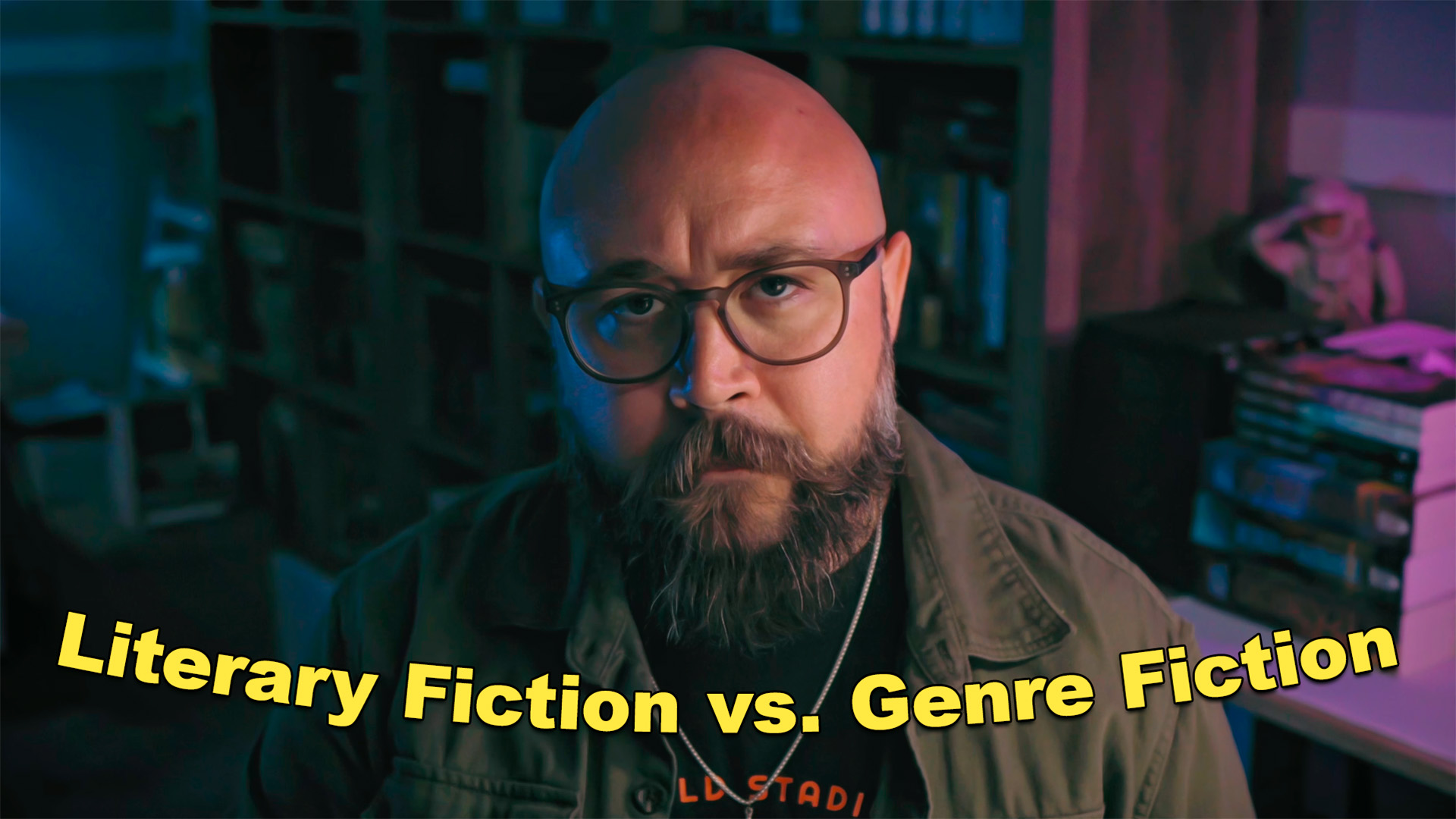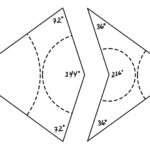I recently read Good Morning, Midnight—a book whose journey I loved, but whose destination I found to be sorely underwhelming—and it, along with an ongoing argument with a friend, got me thinking. There appears to be a divide, a schism, in the literary world between what we call “literature” and what we call “genre fiction.”
Literature, in its most elite conception, gets shelved in bookstores near the front. It’s where the Pulitzer winners and the Booker Prize contenders live, those books promising deeply insightful and challenging prose that provide poignant insights into the human condition.
Meanwhile, genre fiction—sci-fi, fantasy, crime, horror, romance—that’s all relegated to the back of the store. That corner tends to get marked with what I perceive to be slightly apologetic signage that gives away, right off the bat, that what you’re about to read might be entertaining, but it’s probably not important (with a capital “I”).
This separation is deeply ingrained in the literary world. Literary critics are often suspicious of stories with starships or aliens or robots or post-apocalyptic wastelands, labeling them frivolous or escapist or even silly and certainly not serious. Many see genre books as bound by conventions, right? Campbellian hero’s journeys, plot twists, tidy endings, inherently lacking the philosophical depth and emotional complexity expected of “high art”.
And yet, the line between what constitutes great literature and what constitutes genre fiction isn’t as clean as a lot of people like to think. Some of the most influential novels of the past century fall squarely within science fiction. Authors like Ursula Le Guin, Octavia Butler, Kazuo Ishiguro, Samuel Delany, Frank Herbert, and even the occasional dabblings of Margaret Atwood and Cormac McCarthy remind us that sci-fi isn’t just a category in the back of the bookstore; it’s a way of understanding human nature and the world around us—a way that makes room for perspectives both wildly foreign and deeply familiar.
What Makes a Work “Literary”?
To understand why science fiction can be considered literature—and why it often isn’t—we need to grapple with the slippery concept of what exactly makes something quote unquote literary. Literary fiction is generally seen as writing with artistic merit. These works tend to be introspective and character-driven, focusing not just on what happens but on why and how it matters. The prose often engages with complex themes—identity, morality, power, love—and it does so in a way that is often ambiguous and challenging, and, sometimes, uncomfortable. Literature doesn’t just entertain; it unsettles. It makes you reflect. It demands effort. In some cases, it intentionally alienates or even frustrates you.
Science fiction, however, has a reputation for being too readable. Often, genre fiction relies on fast-moving plots; immersive, escapist world-building; and, God forbid, entertaining storytelling. A book that pulls the reader along with engaging action or a compelling mystery is often dismissed as a guilty pleasure, not something serious. Plot-driven narratives, no matter how well-written, are seen as an inferior form of art—this despite the fact that plenty of great literary fiction employs strong narratives. (See Frankenstein, Heart of Darkness, Lord of the Flies, To Kill a Mockingbird, The Count of Monte Cristo, Around the World in Eighty Days, A Tale of Two Cities, and any number of other literary classics for sterling examples of this.)
I think the real issue isn’t necessarily quality—it’s tradition. Western literary criticism comes from a long lineage of gatekeepers who valued certain forms over others. Anything perceived as “formulaic” was beneath the serious business of high literature. Y’know, even the novel was once considered lowbrow compared to poetry or theater. Science fiction, with its tropes of space travel, futuristic technology, and alien encounters, has long been dismissed as a modern-day descendant of penny dreadfuls—fiction that might entertain, but that cannot, by definition, be art.
Sci-Fi’s Literary Credentials
And yet, some works manage to transcend. Consider Ursula K. Le Guin’s The Left Hand of Darkness, a novel often cited as perhaps thee example of literary sci-fi. Yes, it’s set on the fictional planet of Gethen, where inhabitants shift between genders over the course of their life cycles, but its speculative premise serves as a vehicle for meditations on the fluidity of gender, the limitations of language, and the nature of human connection. In other words, it does what great literature is supposed to do: it forces you to confront the complexities of existence from a perspective that is at once strange and familiar—and don’t even get me started on how beautiful Le Guin’s prose is!
Or take Octavia Butler’s Parable of the Sower, a book I reviewed on this channel not too long ago. It’s a novel about a young woman in a near-future America that has collapsed under the weight of climate change and social inequality. The book reads like an eerie and unsettling prophecy, exploring race, religion, and community in ways that feel both disturbingly real and undeniably literary. It doesn’t just predict the future; it critiques the present through the lens of speculation, and this elevates the story far beyond being a mere dystopian tale.
Even Kazuo Ishiguro, who is typically associated with literary fiction, dabbles in science fiction from time to time. His novel Never Let Me Go tells the story of children growing up in a seemingly idyllic boarding school, only to reveal much, much later that—and this is a huge spoiler, so cover your ears if you haven’t read it, but—they’re actually clones bred specifically for organ harvesting. Ishiguro’s exploration of memory, identity, and loss is unassailably literary, even though the narrative is deeply rooted in a speculative premise.
Escapism vs. Engagement
A major critique of genre fiction is that it offers escapism rather than engagement with reality. But this, too, is a false dichotomy. All fiction, to some degree, offers escapism. No one reads Moby-Dick expecting to gain practical knowledge about whaling—although there is no shortage of that to be found in Moby-Dick … but that’s not specifically why we read it, right? What makes escapism meaningful—or shallow—has more to do with execution than genre. Good sci-fi doesn’t just transport readers to a far-off future; it uses that future to comment on the present.
The Handmaid’s Tale is often begrudgingly called “speculative fiction” (as if to avoid the stigma of the “sci-fi” label), and Margaret Atwood herself once said that all science fiction is really about the present. And I think that this is perhaps the genre’s greatest strength: it takes what is familiar and stretches it just far enough to reveal its hidden contours. With Dune, Frank Herbert doesn’t just create a desert planet ruled by warring factions, right? He offers a reflection on ecological and geopolitical fragility, eugenics, and messianic myths that still feels as relevant now as it must have in 1965—hence its enduring popularity!
Why Literary Critics Miss the Point
One reason, I think, science fiction often gets dismissed by literary critics is the assumption that genre tropes—robots, space travel, parallel universes—detract from a book’s ability to convey universal truths about human experience. The idea is that if a story takes place too far from our everyday reality, it can’t possibly speak meaningfully to it. But I think this misses the point entirely. The distance a speculative setting can provide often allows for a much more honest examination of our world than a strictly realistic setting could.
Consider how Samuel R. Delany’s Dhalgren—a dense, difficult novel that’s often hailed as a masterpiece of both literary and science fiction—uses a surreal, post-apocalyptic city in some sort of spatial/temporal flux to explore questions of race, sexuality, and identity, and the novel’s multistable perception reflects the fragmented experience of modern existence. It might not be a “realistic” novel in the conventional sense, but it certainly offers us an emotionally and intellectually rigorous experience—which is exactly what we expect from great literature.
A New Canon
It’s possible that the genre distinctions we cling to today are already eroding. In a world where Margaret Atwood and Cormac McCarthy write about speculative futures and Kazuo Ishiguro crafts stories about clones, I think the boundaries between literary and genre fiction are less meaningful than they once were. Authors like Ted Chiang, Liu Cixin, and Emily St. John Mandel continue to demonstrate that speculative narratives can be just as thought-provoking, beautifully written, and emotionally resonant as anything in the literary canon.
Perhaps the real question isn’t whether science fiction can be literature, but whether the distinction between the two is even relevant. As we move further into an era shaped by rapid technological advancements, environmental crises, and complex social transformations, the boundaries here seem increasingly arbitrary. Fiction, in any form, serves as both a mirror and a lens: it reflects the state of our world while also offering new ways of seeing it. In this sense, speculative narratives are not merely entertaining flights of imagination; they are critical tools for thought, helping us grapple with possibilities we haven’t yet encountered and ethical dilemmas that haven’t fully arrived but are looming on the horizon.
The truth is, the future—and our understanding of it—requires imaginative frameworks that can stretch beyond the familiar confines of literary realism. It’s no coincidence that some of the most pressing conversations about artificial intelligence, genetic engineering, and climate change find their clearest articulation not in realist novels, but in speculative fiction. The best authors working in sci-fi today are engaging with these issues in ways that most traditional literary fiction cannot, using futuristic and alternate realities to ask fundamental questions about the choices we’re facing now. To limit fiction’s potential by clinging to outdated genre conventions not only does a disservice to readers but it also undermines literature’s ability to engage meaningfully with a world that is evolving faster than ever.
The Best of Both Worlds
I believe literary science fiction offers the best of both worlds. It combines the imaginative freedom of speculative fiction with the thematic depth and stylistic rigor of literature. Perhaps, one day, those shelves marked “Sci-Fi/Fantasy” will no longer need their apologetic labels. Just as genres are merging and storytelling conventions are evolving, I think our perception of fiction will likely continue to shift. We may come to realize that a story’s worth isn’t determined by the aisle in which it is shelved, but by how it resonates with its readers—by how it sparks thought, or elicits empathy, or dares us to dream of new realities. In the end—whether they’re set on Earth, or fantasy worlds, or out among the stars—the best stories are those that linger in our minds, and challenge us, and change us. And isn’t that what great literature, in any form, is all about?


